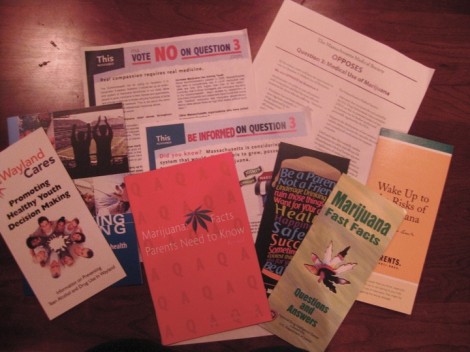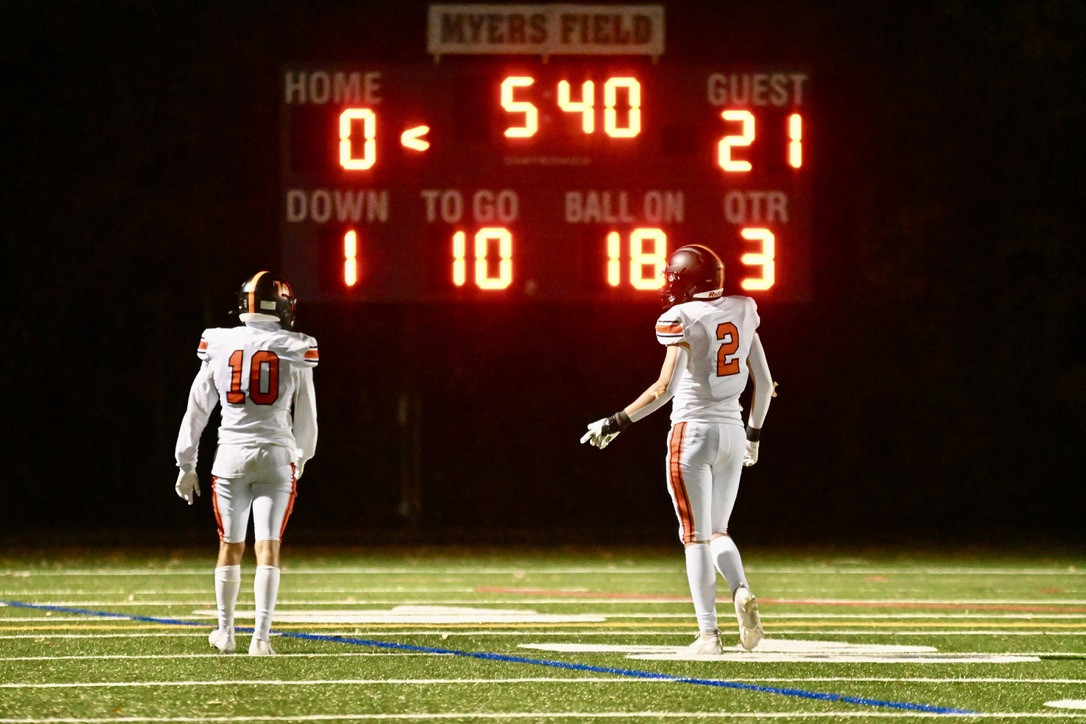
Question 3 will determine if the Massachusetts Medical Marijuana Initiative will pass. If medical marijuana were to be legalized, it would permit patients to obtain up to a 60 day supply of marijuana with a prescription from their physician. The Department of Public Health would also allow up to 35 dispensaries throughout Massachusetts. Approved patients would be allowed to grow marijuana in their own homes as well.
Seventeen states have already legalized the use of medical marijuana.
Sabet urged members of the Wayland community to vote against the legalization of medical marijuana, while Miron pushed for it.
Sabet’s argument mainly focused on the increase in recreational usage that would result if the bill were to be approved. He encouraged voters not to look at the issue as being black and white, but instead advocated a compromise that would tighten restrictions on the current bill proposal.
Sabet also used the legal drugs of today’s market, such as alcohol and cigarettes, as evidence to why marijuana should remain illegal. He explained how alcohol advertisements influence the young population of our nation to drink and said the principle behind alcohol marketing is to keep prices low and consumption high.
Another main component to Sabet’s argument against legalization was that it would have a negative impact on teens. If medical marijuana were to be legalized, it would be easier for kids to access, as adults would be capable of illegally selling marijuana to minors. According to Sabet, marijuana is especially dangerous for teens because one out of every six kids who try it become addicted.
A survey conducted by the National Institute on Drug Abuse (NIDA) indicated that in 2011, 22.6% of 12th graders admitted to using marijuana in the past month, a 3.8% increase from the 2007 statistic.
Junior Dillon Baker found Sabet’s argument compelling. It reinforced his already existing opposition to the bill. Sabet’s explanation of the new “Sativex” drug resonated with Baker.
Sativex, which has been approved for prescription in Canada, New Zealand and eight other European countries, uses two key natural elements of marijuana, CBD and THC. The drug introduces CBD to counteract the THC, relieving pain in the same way as marijuana, but eliminating the high.
“It’s better than smoking. It’s more focused on medicinal use than just the component of marijuana,” Baker said. Sativex is in late stages of FDA approval in the United States, and it is expected to be released as early as 2013.
Miron argued the opposite viewpoint, stating at the beginning of his presentation that he supports the full legalization of marijuana, but since that’s not yet being considered, endorses the legalization of medical marijuana.
Miron explained that legal drugs such as alcohol and cigarettes are similarly harmful to marijuana with regards to effects on health and behavior. He argued that prohibition of the drug generates more harm than good in this case. Because marijuana is prohibited, there is corruption, as well as poor quality control of the drugs that end up being illegally sold.
Current evidence suggesting the positives of medical marijuana mostly comes from patient testimony. While it would benefit the case for legalization of medical marijuana to conduct more clinical trials, federal law makes these kinds of tests nearly impossible because of the involvement with marijuana.
Audience member and Wayland resident Carol Shayari’s beliefs were in line with most of Miron’s argument. Shayari’s sister fell ill with pancreatic cancer and, before her death at fifty-seven, relied on marijuana during her treatment.
“Marijuana was definitely helpful. It certainly did ease her pain, so I firsthand saw that it works,” Shayari said.
Shayari has witnessed its benefits, and explained that marijuana’s positive effect on the terminally ill outweighs the risks of legalization.
Massachusetts voters will determine the legalization of medical marijuana in our state on November 6.




































